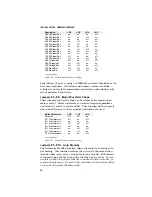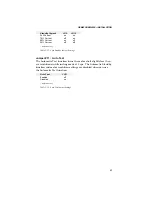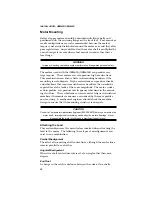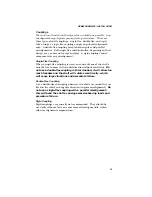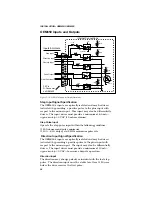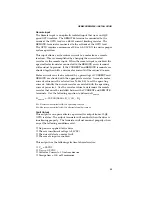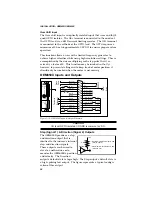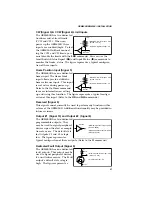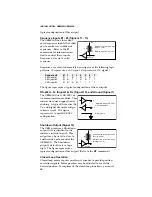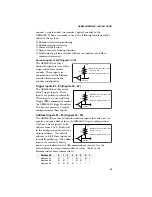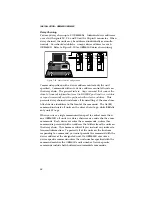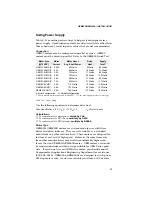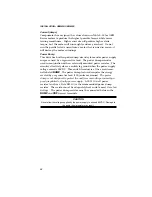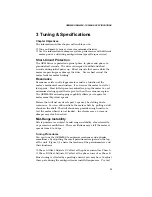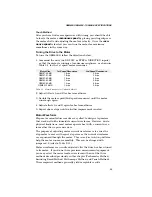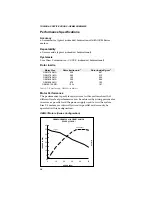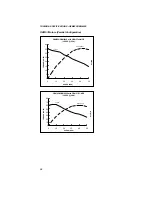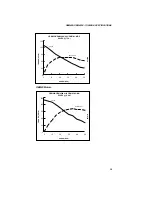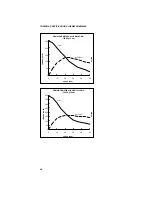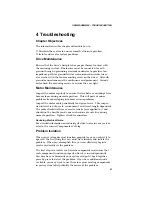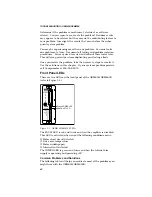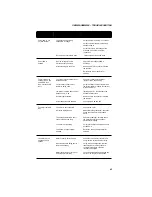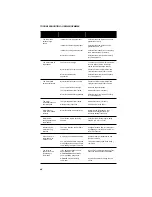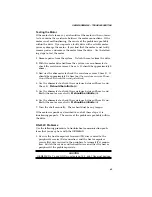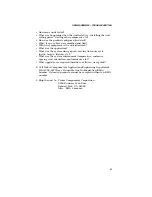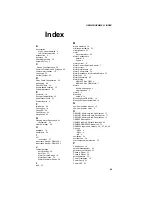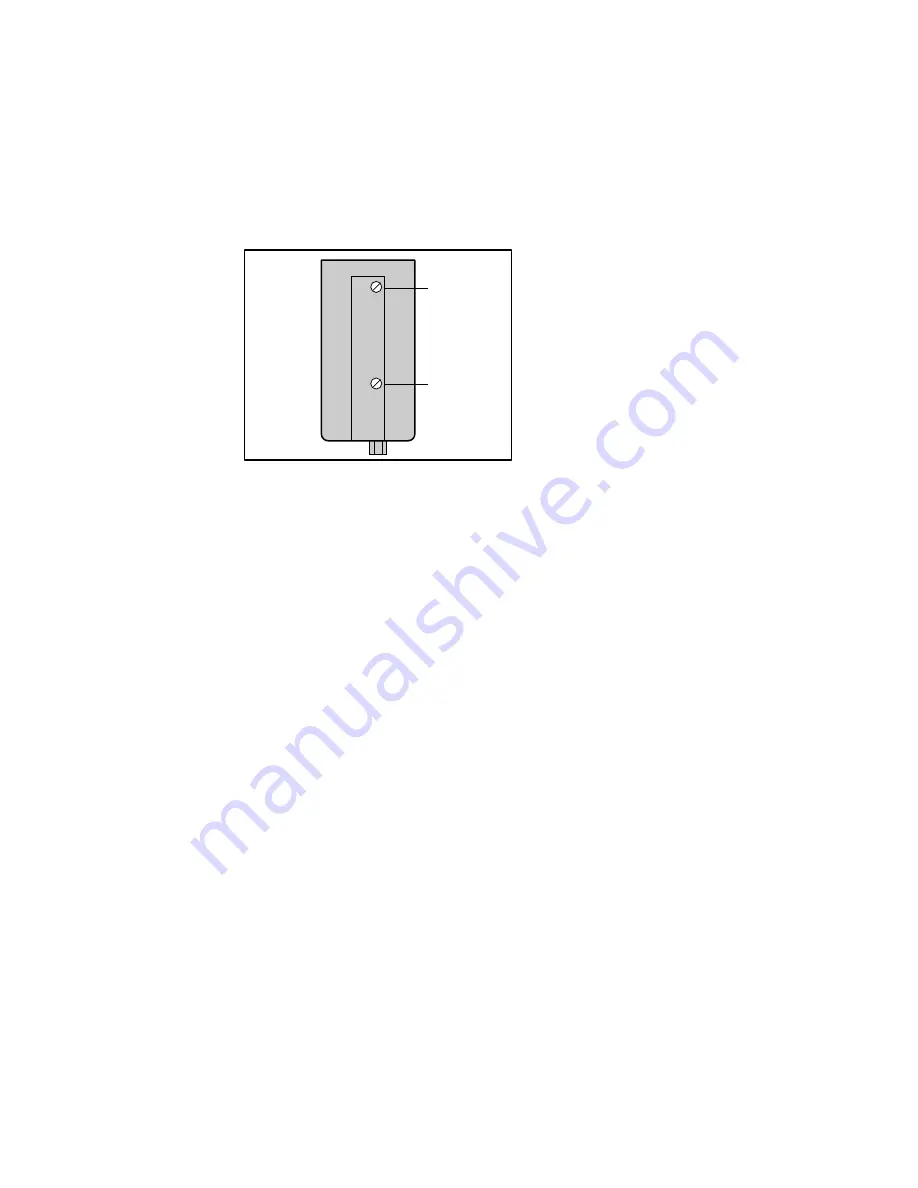
TUNING & SPECIFICATIONS • OEM650/OEM650X
34
results, the drive and motor should be on, connected to the load, and
warmed up for 30 minutes prior to tuning.
Phase B Offset
Phase A Offset
Top View
Figure 3-1. Tuning Potentiometers
Gauging Motor Resonance
There are several methods that you can use to determine the level of
motor resonance in your system.
Tachometer Method
Use an oscilloscope to gauge the output of a tachometer attached to
the motor shaft. The tachometer will output a DC voltage, propor-
tional to speed. This voltage will oscillate around an average voltage
when the motor is resonating. The amplitude of this oscillation will
be at its maximum when you run the motor at its
resonance speed
.
The goal of this tuning method is to tune the motor for its lowest
oscillation amplitude.
Sounding Board Method
You can practice your tuning skills with an unloaded motor placed
on a sounding board or table. When you command a velocity that is
near the motor’s
resonance speed
, the phenomenon will cause an
audible vibration. The goal of this tuning method is to tune the
motor for the least amount of vibration.
Stethoscope Method
When you tune your motor under loaded conditions, you can hear
the audible vibration caused by the motor’s natural frequency by
placing the tip of a screw driver against the motor casing and placing
the handle of the screw driver close to your ear (as you would a
stethoscope). You will also be able to hear the different magnitudes
of vibration caused by the motor’s natural frequency. The goal of
this tuning method is to tune the motor for the least amount of
vibration.

